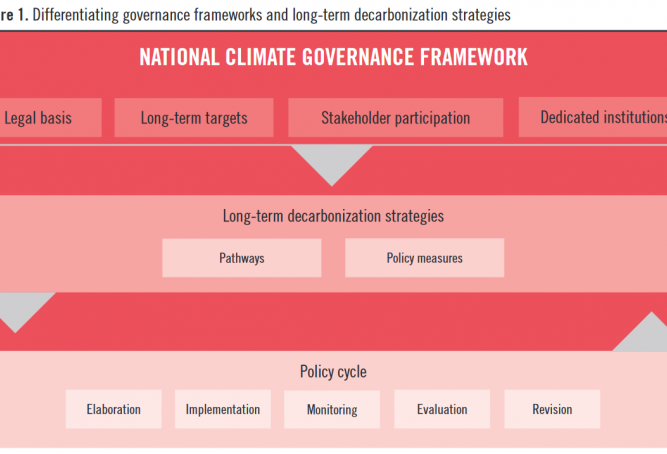Outputs
Long-Term Climate Strategies Matrix is a living document that aims to capture existing information on the ongoing processes of long-term climate strategy developments across the EU Member States.
The Paris Agreement and, recently the European Union (EU) through its new legislation “Regulation for the Governance of the Energy Union”, stipulate upon its parties and members to the EU to develop long-term climate strategies.
National long-term strategies (LTS), as long-term energy policy documents submitted by EU Member States to the European Commission, give an insight into the envisioned decarbonisation pathways of particular countries.
Long-Term Strategies are key instruments for transforming the economies of Member States and achieving the EU’s ambitious climate neutrality goals.
Long-term (climate) Strategies (LTSs) stand out from other government strategies, as they provide a vision of the national economy far into the future and encompass an unusually broad spectrum of policy areas.
Modern, low-carbon district heating networks are important vectors for decarbonizing the European heating sector.
Decarbonisation will not be achieved merely through political commitments, it also requires rigorous evidence-based planning. Romania still needs to publish its long-term strategy (LTS) on how decarbonisation will be achieved by 2050.
As amply demonstrated by each passing year, the decarbonisation of our economies is the key societal challenge of the 21st century. In response, each EU member state is required to adopt and regularly update a holistic decarbonisation strategy until 2050, known as a long-term strategy (LTS).
The Briefing Note presents the first insights of the Climate Recon 2050 project.
The document brings together insights from the discussions on long-term climate planning held among policymakers from 10 EU Member States, and builds on related research conducted by project partners.

.jpg)
.jpg)

.jpg)


 Guillaume Le Bloas_L.jpg)
